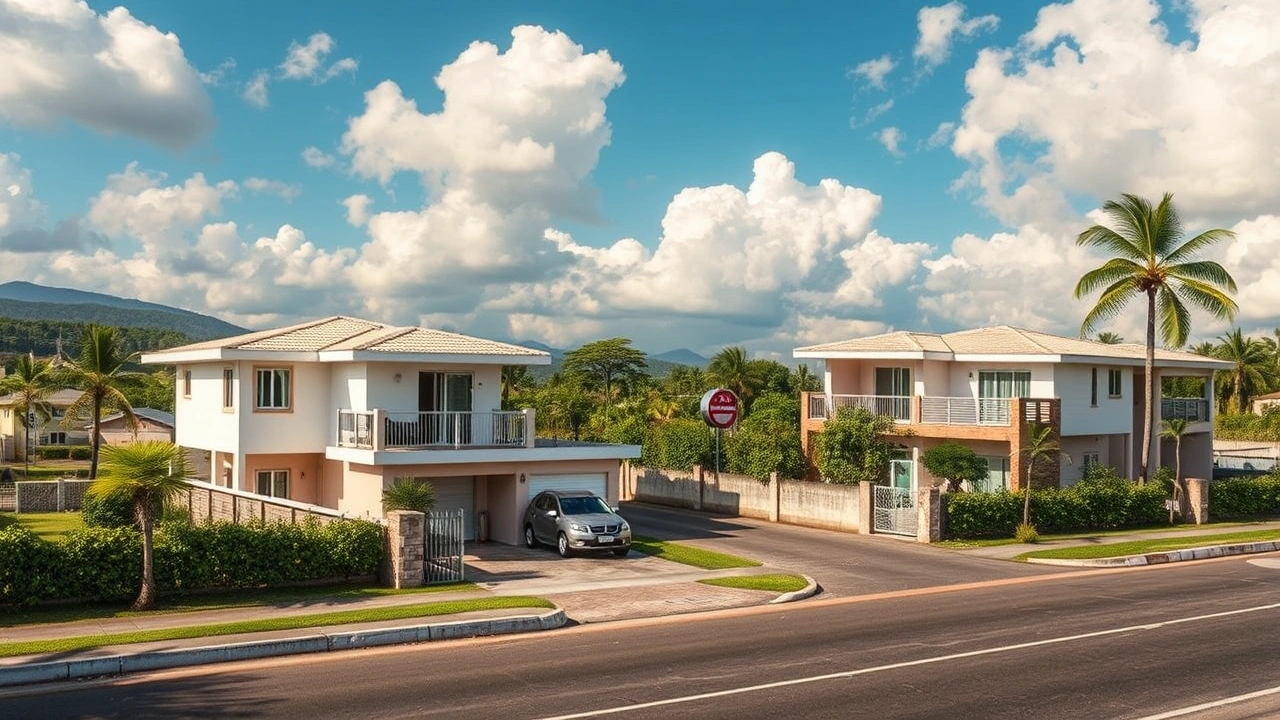
 Published on and written by Cyril Jarnias
Published on and written by Cyril Jarnias
The paradise archipelago of the Bahamas attracts numerous international real estate investors drawn to its white sandy beaches, turquoise waters, and idyllic lifestyle. However, negotiating property purchases in this small Caribbean island nation requires a strategic and well-prepared approach. Here is a comprehensive guide to help you get the best possible deal on your real estate acquisition in the Bahamas.
Secrets to Successful Negotiation in the Bahamas
Negotiating property purchases in the Bahamas can save you significant amounts if you adopt the right strategies. Here are some proven tactics to maximize your chances of success:
1. Do Your Homework in Advance
Before even starting negotiations, ensure you have thorough knowledge of the local market. Analyze prices of similar properties in your area of interest, study recent and future market trends, and identify factors that could influence the property’s long-term value. This preparation will give you a solid foundation for negotiation.
2. Build Rapport with the Seller
In the Bahamas, personal relationships play an important role in real estate transactions. Take time to establish rapport with the seller, show genuine interest in the property and the Bahamas in general. This approach can give you an advantage during negotiations.
3. Be Prepared to Act Quickly
The Bahamian real estate market can be very competitive, especially for the most attractive properties. Ensure all your financial documents are in order and that you’re able to make an offer quickly when opportunities arise.
4. Use Property Flaws to Your Advantage
If the property requires renovations or has minor drawbacks, don’t hesitate to diplomatically point them out to justify an offer below the asking price. Quantify the cost of necessary work to support your argument.
5. Propose an Attractive Package
Beyond price, consider other elements that might interest the seller. For example, propose a lease-back period if the seller needs time to move out, or offer a shorter payment timeline if you’re able to do so.
Good to Know:
In the Bahamas, patience is often rewarded in real estate negotiations. Don’t rush to close the deal and be prepared to temporarily withdraw from negotiations if necessary to obtain better terms.
Decoding the Bahamian Real Estate Market: Keys to Smart Buying
To negotiate effectively, it’s crucial to understand the specifics of the Bahamian real estate market. Here are the essential points to know:
A Dynamic and International Market
The Bahamian real estate market is largely influenced by foreign investors, particularly Americans and Europeans. This international demand keeps prices high, especially in prime areas like Nassau, Paradise Island, or the Exumas.
Varied Prices Across Islands
Real estate prices can vary considerably from one island to another. For example, in 2025, the average price per square meter is:
– Nassau and Paradise Island: approximately €5,215/m² for apartments – Exumas: around €4,757/m² for houses – Less touristy islands: starting from €2,500/m²
A Predominant Luxury Market
The Bahamas are renowned for their high-end real estate offerings. Luxury properties, often located waterfront or with private beach access, constitute a significant portion of the market.
Opportunities in New Construction
Numerous real estate development projects are emerging in the Bahamas, offering pre-construction purchase opportunities at potentially more advantageous prices.
An Attractive Tax Framework
The absence of income tax, capital gains tax, and inheritance tax makes the Bahamas particularly attractive to international investors. However, stamp duty and registration fees apply to real estate transactions.
Good to Know:
The Bahamian real estate market is cyclical, with peak activity during the high tourist season (December to April). Buying during the low season may allow you to benefit from better negotiation terms.
Pitfalls to Avoid for Successful Negotiation in the Bahamas
Although the Bahamian real estate market offers great opportunities, it also carries certain risks. Here are the most common mistakes to avoid during your negotiation:
1. Neglecting Due Diligence
Never skip thorough property inspection and meticulous verification of property titles. In the Bahamas, some properties may have title issues or undeclared easements.
2. Underestimating Additional Costs
Beyond the purchase price, remember to account for stamp duty (up to 10% of sale price), legal fees, registration fees, and potential renovation or maintenance costs.
3. Ignoring Restrictions for Foreigners
Although the Bahamas are open to foreign investors, certain restrictions apply, particularly for purchasing land over 2 hectares. Ensure you obtain necessary approvals from the Investment Board.
4. Rushing the Negotiation
Patience is a virtue in the Bahamas. Don’t feel pressured to close the deal and take time to properly evaluate all available options.
5. Neglecting the Importance of Local Relationships
Working with a reputable local real estate agent and a lawyer specialized in Bahamian real estate can make all the difference in your negotiation. Their market knowledge and network can open doors and help you avoid many pitfalls.
Good to Know:
In the Bahamas, oral tradition is still very present. Don’t rely solely on verbal promises and ensure all agreements are documented in writing and validated by your lawyer.
Conclusion: Your Passport to Successful Real Estate Investment in the Bahamas
Negotiating property purchases in the Bahamas might seem intimidating at first, but with proper preparation and a well-thought-out strategy, you can achieve substantial savings while securing your dream investment.
Remember that the Bahamian market, though small, offers numerous opportunities for savvy buyers. With average prices reaching €5,215/m² for apartments and €4,757/m² for houses, every euro saved during negotiation can make a significant difference in the long term.
- Understand the local market and its specifics in depth
- Develop a negotiation strategy adapted to the Bahamian context
- Avoid common pitfalls that could compromise your investment
- Cultivate a local network to access the best opportunities
- Exercise patience and diligence throughout the process
By following these tips, you’ll be well-equipped to navigate the Bahamian real estate market and negotiate your property purchase under the best possible conditions. Remember that each transaction is unique, and it may be wise to engage local professionals to guide you through the more complex aspects of negotiation and purchase.
Disclaimer: The information provided on this website is for informational purposes only and does not constitute financial, legal, or professional advice. We encourage you to consult qualified experts before making any investment, real estate, or expatriation decisions. Although we strive to maintain up-to-date and accurate information, we do not guarantee the completeness, accuracy, or timeliness of the proposed content. As investment and expatriation involve risks, we disclaim any liability for potential losses or damages arising from the use of this site. Your use of this site confirms your acceptance of these terms and your understanding of the associated risks.

















